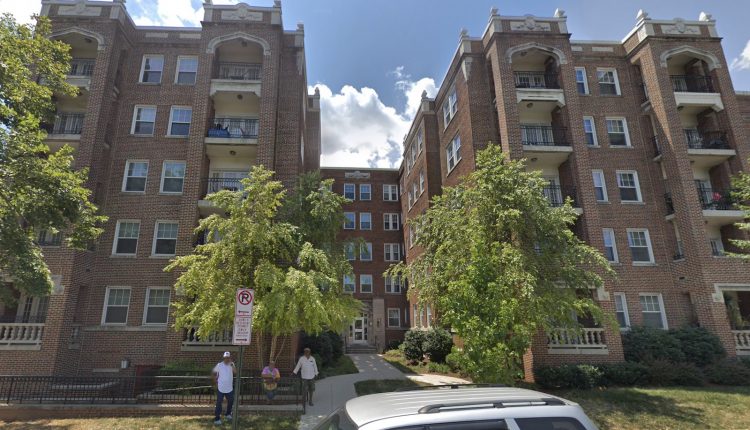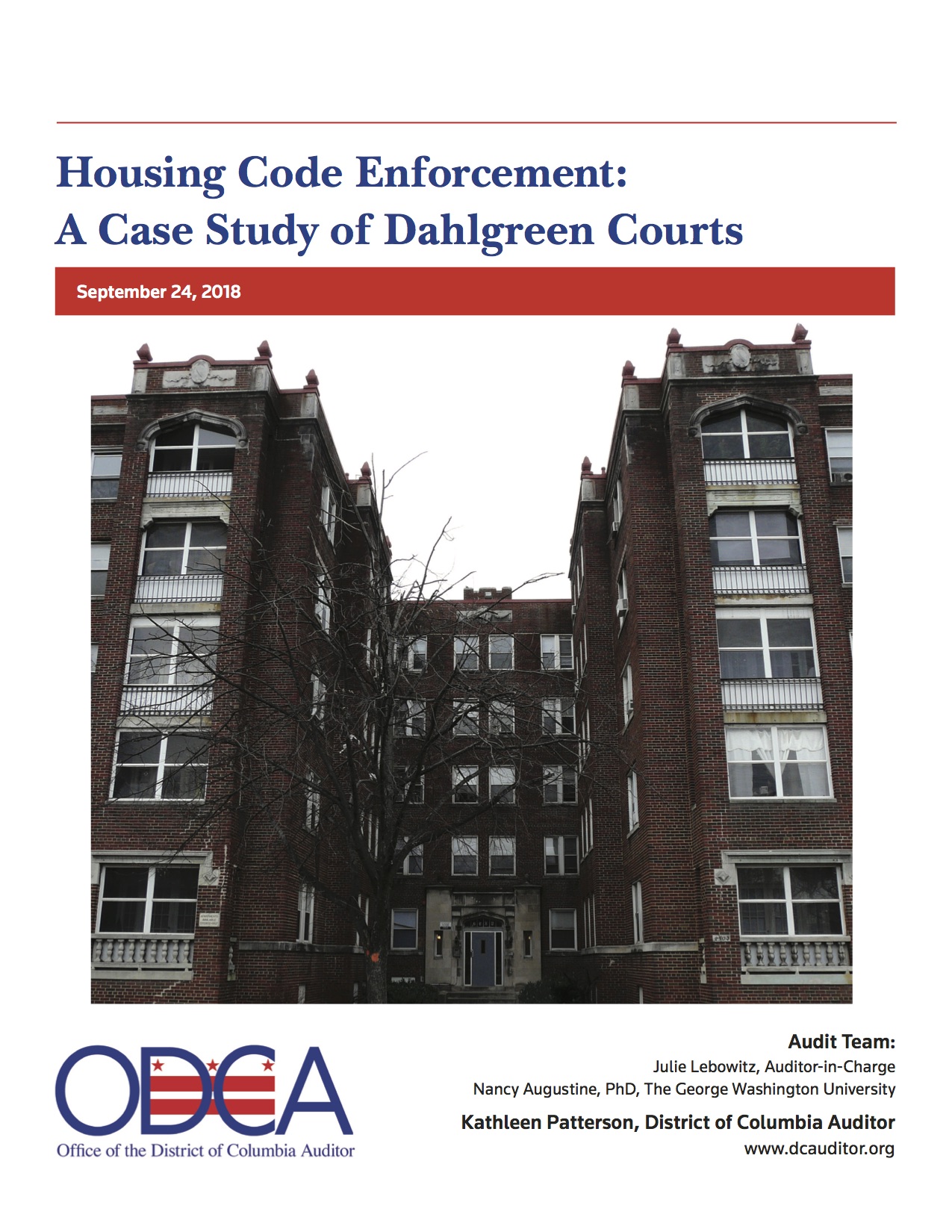
Council castigates DCRA housing enforcement as inadequate amid public complaints that ‘continue unabated’
Just weeks before Monday’s shake-up atop the city’s Department of Consumer and Regulatory Affairs, DC Council members joined tenants and affordable housing advocates in criticizing the agency for years of overlooked housing violations and in pressing for better code enforcement in the wake of an audit about experiences at a 100-year-old apartment complex in Brookland.
On Monday, Mayor Muriel Bowser announced the appointment of Ernest Chrappah to serve as the agency’s interim director, highlighting his “reputation for finding innovative solutions to complex challenges” in prior positions as director of the Department of For-Hire Vehicles and as deputy chief information officer for the Child and Family Services Agency. He replaces Melinda Bolling, who came under criticism at council Chairman Phil Mendelson’s Oct. 31 public oversight hearing on a September report by the Office of the DC Auditor that focused on Ward 5’s Dahlgreen Courts and the lessons it offers on the shortcomings of DCRA’s enforcement efforts.
Mendelson requested the audit — “Housing Code Enforcement: A Case Study of Dahlgreen Courts” — in order to “determine whether DCRA could better protect tenants through more rigorous and timely enforcement of the housing code,” according to the report’s executive summary.
 Dahlgreen Courts — described by the DC auditor as “a case study that illustrates how the enforcement process can stretch into months” — has been the site of controversy for years. In March, a group of residents sued their property manager, Columbus Property Management, along with affordable housing developer Mission First Housing Development Corp. after they tested positive for lead poisoning, according to the Washington City Paper.
Dahlgreen Courts — described by the DC auditor as “a case study that illustrates how the enforcement process can stretch into months” — has been the site of controversy for years. In March, a group of residents sued their property manager, Columbus Property Management, along with affordable housing developer Mission First Housing Development Corp. after they tested positive for lead poisoning, according to the Washington City Paper.
The audit examined complaints Dahlgreen residents filed with DCRA in December 2016 and the department’s delayed response time. Inspectors found 105 violations in 17 units, such as cracks in ceilings and floors, mold and lead-based paint. Forty tenants tested positive for elevated levels of lead in their blood. The citations came with potential fines of up to $36,000.
It took DCRA eight months to resolve the issues, and the landlord ended up paying just $2,500 in fines. The D.C. Municipal Regulations do not set a specific time frame for a landlord to correct a violation; most abatement, however, occurs within 30 days or less, according to the audit.
The audit concludes by suggesting the council establish more significant protections and more effective enforcement actions through a change in law. “Failure to enforce the housing code effectively and consistently, whether due to insufficient language in the D.C. Code or implementation choices made at the department level, jeopardizes the health and well-being of affordable housing residents of the District,” the audit concludes.
In DCRA’s written response to the audit, Bolling faulted the idea of using Dahlgreen Courts as a case study for how the agency handles housing enforcement, saying that the situation there required an unusual level of involvement from multiple departments, in part because of the presence of lead paint. “However, the auditor framed Dahlgreen Courts as an example of a typical DCRA housing enforcement response,” Bolling said. “DCRA believes this characterization does not fully consider the unique characteristics of this unique enforcement.”
But the council’s Oct. 31 oversight hearing brought a litany of complaints from public witnesses about the usual characteristics of the department’s enforcement efforts, as well as concerns from Ward 5 Council member Kenyan McDuffie about the response at Dahlgreen Courts.
McDuffie, whose ward includes the Brookland neighborhood, opened the hearing by recalling his own visits to the Dahlgren Courts apartment complex, saying that the conditions his constituents had to endure — and DCRA’s inadequate response — “shock the conscience” in the midst of the District’s housing crisis.
“We discovered rodent droppings. Residents have inflammatory symptoms from lead exposure,” he said. “For me, this is wholly unacceptable. We cannot let this happen.”
Beth Harrison, supervising attorney for the Housing Law Unit of the Legal Aid Society of the District of Columbia, testified that the experiences documented at Dahlgreen Courts are shared by tenants of many other buildings throughout DC.
“Even though the report is limited to this one case study, these are problems we have seen ongoing for years,” Harrison said.
Instead of relying on DCRA to implement reforms, the council should mandate changes such as tighter timelines for enforcement and less landlord discretion in resolving violations, Harrison said. “We think it’s appropriate by statute to include more details on how the agency should manage certain things,” she said.
Anne Cunningham, a senior policy attorney at the Children’s Law Center in DC, characterized the report as confirmation of long-standing concerns about inadequate housing enforcement. The department’s failures jeopardize the health and safety of the city’s tenants, she said.

“DCRA is not transparent and does not reliably keep data or inspections,” she said. Cunningham also said the agency has repeatedly failed to comply with her requests for documents under the DC Freedom of Information Act.
Cunningham suggested that the council move forward on legislation that splits up the department’s various functions among multiple agencies.
“We need to move forward to create a regime which works,” said Cunningham. “DCRA generally lacks a structure and culture for strategic deployment of its resources.”
Victoria Goncalves, a tenant organizer for the Latino Economic Development Center, said she’s been working with low-income renters in Mount Pleasant, Columbia Heights and other DC neighborhoods for seven months now and in that time has found that all of her clients endure housing code violations. Yet many don’t press their landlords for improvements or seek the city’s involvement out of fear that they won’t be able to find housing elsewhere that they can afford, she said. Others have had bad experiences with city inspectors who either didn’t show up or didn’t provide notice of their visits.
“Slumlords will not only take tenants to eviction courts, [but they also] are unresponsive when it comes to fixing conditions” that put life and safety at risk, she said. “These landlords have a deliberate business strategy and are trying to kick people out of their apartments as soon as they can.”
Goncalves recalled working with a single mother who was unable to take her 2-year-old to day care because he was suffering from bed bugs. Weeks passed before the landlord sent a terminator to fix the problem so the child could go back to day care, she said.
“Because of the scarcity of affordable housing in the District, tenants can’t just get up and move to a different place,” Goncalves said. “As it stands today, DCRA is ineffective.”
Testifying after the public witnesses, Bolling defended DCRA’s record on housing violations while characterizing the Dahlgreen Courts case as atypical of how the agency generally deals with such cases. Ensuring that landlords correct violations so that tenants “have a safe place to call home” — the agency’s priority — depends on multiple strategies, not just fines, she said.
“DCRA’s dedicated staff takes our responsibility seriously and strives to respond as quickly as possible,” she said. In this case, Bolling said, the involvement of the Department of Energy and Environment justifiably meant it took regulators longer to respond.
“During the inspection process, DCRA followed the appropriate protocol to immediately involve DOEE, the agency responsible for detecting lead paint and offering appropriate remediation,” Bolling said. “Given the danger lead paint poses, these violations took priority. When I learned there would be a delay, I separated the DCRA code violations which were unrelated to lead paint, so we could move forward with enforcement.”
But Mendelson dismissed Bolling’s argument, noting that lead paint is far from unusual. After the hearing, the council chairman wrote in an email to The DC Line that the hearing only solidified his concerns about the agency’s direction.
“I don’t believe the DCRA is taking the public testimony seriously enough,” Mendelson said. Despite the agency’s repeated promises for reforms to improve housing enforcement, “the complaints continue unabated.”


Comments are closed.